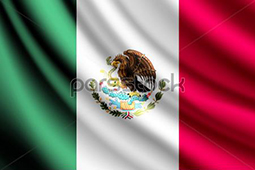
US products railed 'round Mexico's mountains


Mexico's refined products railed import infrastructure is still dominated by slower transloading operations, which can take four to seven days to unload a unit train. But more efficient unit train-capable destinations are being built.
Kansas City Southern (KCS), perhaps the best-positioned US railroad to benefit from Mexico's demand, runs unit trains from US Gulf coast refining centers into central Mexico.
Mexico's mountainous inland terrain offers distinct advantages for rail over pipelines, railroad executives reckon. Most residents live in the central region, and the mountain range through Mexico's central spine complicates cross-country pipelines.
"Those mountain ranges are extremely difficult and costly to build through," said David Eaton, vice president of sales and marketing at KCS' Mexican subsidiary. "We do not think there will be pipelines in those markets for 10 to 20 years, if ever."
Terminal storage will be the linchpin for railed refined products in Mexico, Eaton said. Terminals need significant storage to unload a typical 96-car unit train laden with 65,000 bl.
Many Mexico-bound KCS shipments originate from the Jefferson Energy Terminal in Beaumont, Texas. The terminal is close to ExxonMobil's 348,000 b/d Beaumont refinery, and connects to all major operational Mexico refined products terminals.
Rangeland Energy's Corpus Christi products-by-rail and LPG loading terminal came on stream for manifest carload service in June, and is targeting unit train shipments by late 2019. Howard Midstream Energy Partners in May completed a new bulk liquids terminal in the Port of Corpus Christi.
In Mexico, Gas Natural del Noroeste's 510,000 bl in San Jose Iturbide, Guanajuato is Mexico's sole unit train-capable terminal. Pemex's PMI trading unit is the largest terminal customer, and ExxonMobil also holds storage there.
On the coast, Avant Energy is building terminals to supply the Port of Altamira, Tamaulipas, known as Supera, with US logistics group Savage and KCS' Mexico subsidiary as partners.


Trump weighs using $2 billion in CHIPS Act funding for critical minerals

Codelco cuts 2025 copper forecast after El Teniente mine collapse

Electra converts debt, launches $30M raise to jumpstart stalled cobalt refinery

Barrick’s Reko Diq in line for $410M ADB backing

Abcourt readies Sleeping Giant mill to pour first gold since 2014

Nevada army depot to serve as base for first US strategic minerals stockpile

SQM boosts lithium supply plans as prices flick higher

Viridis unveils 200Mt initial reserve for Brazil rare earth project

Tailings could meet much of US critical mineral demand – study

Kyrgyzstan kicks off underground gold mining at Kumtor

Kyrgyzstan kicks off underground gold mining at Kumtor

KoBold Metals granted lithium exploration rights in Congo

Freeport Indonesia to wrap up Gresik plant repairs by early September

Energy Fuels soars on Vulcan Elements partnership

Northern Dynasty sticks to proposal in battle to lift Pebble mine veto

Giustra-backed mining firm teams up with informal miners in Colombia

Critical Metals signs agreement to supply rare earth to US government-funded facility

China extends rare earth controls to imported material

Galan Lithium proceeds with $13M financing for Argentina project

Kyrgyzstan kicks off underground gold mining at Kumtor

Freeport Indonesia to wrap up Gresik plant repairs by early September

Energy Fuels soars on Vulcan Elements partnership

Northern Dynasty sticks to proposal in battle to lift Pebble mine veto

Giustra-backed mining firm teams up with informal miners in Colombia

Critical Metals signs agreement to supply rare earth to US government-funded facility

China extends rare earth controls to imported material

Galan Lithium proceeds with $13M financing for Argentina project

Silver price touches $39 as market weighs rate cut outlook

















